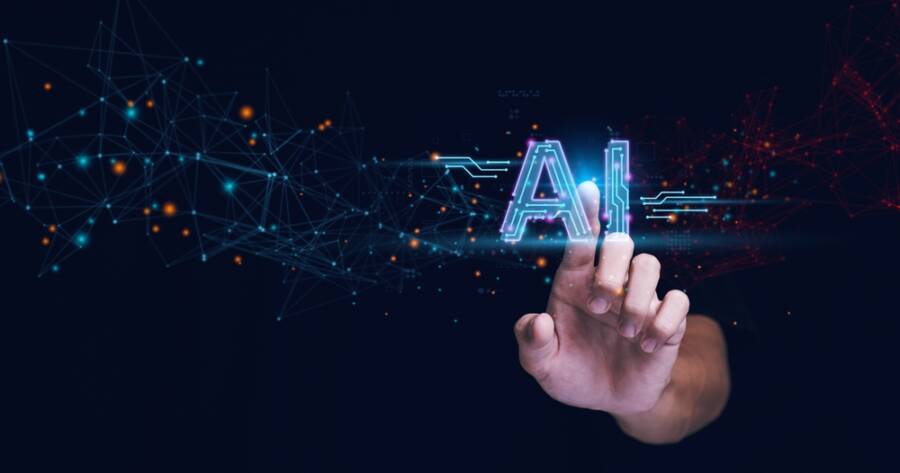The rise of artificial intelligence (AI) is transforming the way we live, work, and interact. From personalized recommendations to virtual assistants, AI technology is increasingly woven into our daily routines. Understanding its impact provides insights into both opportunities and challenges, shaping our adaptation to this rapidly evolving landscape. By embracing AI’s potential, we may enhance efficiency, creativity, and connectivity in numerous aspects of life.
AI in Communication and Connectivity
AI is revolutionizing communication by enhancing connectivity and information exchange. Chatbots and virtual assistants like Siri or Alexa streamline tasks, providing quick access to information and services. These tools facilitate seamless interaction and support efficient management of daily activities.
Social media platforms utilize AI algorithms to personalize content, recommending posts and advertisements tailored to user interests. By analyzing user behavior and preferences, AI enhances engagement and fosters relevant connections. This personalized approach transforms how we communicate and consume content, making it more aligned with individual needs.
AI in Healthcare
The integration of AI in healthcare is providing new possibilities for diagnosis, treatment, and patient care. AI-powered tools can analyze vast datasets to identify patterns, potentially aiding in early detection of diseases. Machine learning algorithms assist in predicting patient outcomes and personalizing treatment plans, tailoring care to individual needs.
Furthermore, AI-driven robotic systems support precision in complex surgeries, reducing risks and enhancing recovery rates. Telemedicine platforms leverage AI to offer remote consultations and monitoring, increasing accessibility to healthcare. These advancements suggest a shift towards more efficient and personalized medical care, though ethical and regulatory considerations remain critical.
AI in Education
Education is experiencing a transformation through AI, providing personalized learning experiences and innovative teaching methods. Intelligent tutoring systems adapt to student learning paces, offering customized exercises and feedback. AI-driven analytics assess student performance, identifying strengths and areas for improvement to guide personalized learning paths.
Virtual classrooms equipped with AI facilitate interactive and engaging learning environments. Language processing tools aid in content creation and collaboration, fostering creativity and critical thinking. As AI develops within education, it promises to support diverse learning styles and access, potentially enhancing educational outcomes.
AI in Transportation
AI is reshaping transportation through the development of autonomous vehicles and intelligent traffic management systems. Self-driving cars, guided by AI algorithms, aim to reduce human error and improve safety on roads. While widespread adoption remains on the horizon, continued research suggests significant potential for efficiency and accessibility in urban mobility.
AI-driven traffic management systems optimize flow by analyzing congestion patterns and adjusting signals accordingly. Advanced ride-sharing platforms use AI to enhance route planning and share insights with travelers, increasing convenience. These developments may lead to more efficient, safer, and environmentally conscious transportation solutions.
AI in Business and Industry
Businesses are harnessing AI to innovate and enhance productivity across sectors. Automation of routine tasks allows employees to focus on complex and creative challenges, potentially increasing job satisfaction and efficiency. AI tools provide insightful data analytics, guiding strategic decisions and identifying market trends.
In retail, AI enhances personalization, recommending products tailored to individual preferences and behavior. Manufacturing employs AI-driven robotics for precision and efficiency, optimizing production processes. As businesses continue integrating AI, balancing innovation with ethical considerations will be vital in ensuring sustainable growth.
Ethical Considerations and Challenges
While AI offers transformative potential, it also raises ethical questions and challenges. Privacy concerns emerge from data usage and surveillance algorithms, requiring transparent practices and robust regulations. Bias in AI systems may lead to unfair or discriminatory outcomes, necessitating rigorous testing and accountability.
The displacement of certain jobs due to automation presents economic and social challenges, highlighting the need for workforce adaptation and reskilling. Balancing AI capabilities with ethical imperatives involves collaborative efforts across governments, industry leaders, and society to ensure responsible innovation. This ongoing dialogue promotes trustworthy AI development.
Learn More Today!
The AI revolution is reshaping everyday life by enhancing communication, healthcare, education, transportation, and business. By understanding its impact, individuals and communities can harness AI’s potential to improve efficiency, personalization, and connectivity.
While embracing this transformative technology, continued attention to ethical considerations and challenges will ensure responsible use. The future of AI offers a landscape filled with opportunity and innovation, inviting engagement and exploration from all.

